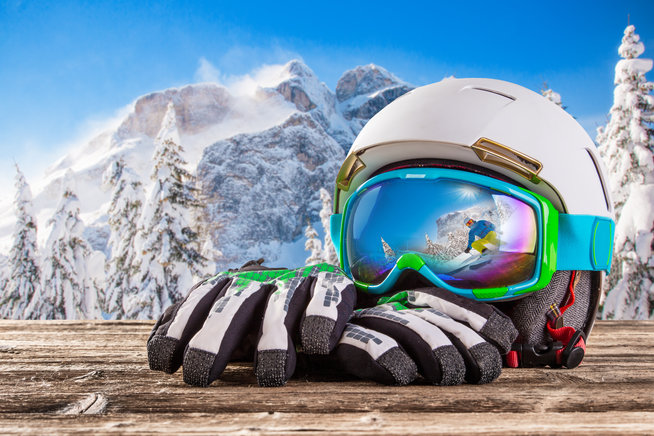Helmet Laws and Snowboarding Safety in Colorado
Colorado’s stunning mountain terrain draws snowboarders from around the world, but the state’s approach to helmet requirements often surprises visitors and residents alike. Unlike many recreational activities with mandatory safety equipment laws, Colorado does not require adult snowboarders to wear helmets, leaving personal safety decisions largely up to individual riders. However, when accidents occur and head injuries result from collisions or falls, the absence of helmet protection can significantly impact both injury severity and legal compensation claims.
At Mintz Law, we regularly handle snowboarding accident cases where helmet use becomes a critical factor in determining injury extent and recovery outcomes. Our experienced personal injury attorneys understand how Colorado’s helmet laws intersect with snowboarding liability cases and insurance claims. We help injured snowboarders navigate complex legal issues while pursuing maximum compensation for their injuries, regardless of whether they were wearing protective equipment at the time of their accident.
Colorado’s Current Helmet Law Framework
Colorado law requires helmet use only for snowboarders under age 18, leaving adult riders free to make their own protective equipment decisions. This limited requirement reflects the state’s general philosophy of personal responsibility in recreational activities, similar to its approach with motorcycle helmet laws. Most Colorado ski areas strongly encourage helmet use through signage and safety programs, but they cannot mandate adult compliance.
The absence of comprehensive helmet requirements doesn’t eliminate legal liability when accidents occur due to negligence by ski areas, equipment manufacturers, or other parties. Courts evaluate snowboarding accident cases based on standard negligence principles, examining whether parties met their legal duties regardless of the injured person’s helmet use. However, insurance companies and defense attorneys often scrutinize helmet use when calculating damages and assessing comparative fault in injury claims.
Impact on Personal Injury Claims
Helmet use can significantly influence personal injury claim outcomes, even when not legally required. Insurance adjusters frequently argue that failure to wear a helmet contributed to injury severity, potentially reducing compensation amounts under Colorado’s comparative negligence laws. This strategy attempts to shift partial responsibility to injured snowboarders, claiming they failed to take reasonable precautions for their own safety.
However, the absence of a helmet doesn’t automatically reduce your legal rights or eliminate claims against negligent parties. Successful personal injury cases focus on proving that other parties’ actions caused your accident, not whether you wore protective equipment. Experienced attorneys know how to counter helmet-related defense arguments and demonstrate that equipment failures, dangerous conditions, or negligent conduct by others remain the primary cause of your injuries.
Medical and Safety Benefits of Helmet Use
Medical research consistently shows that helmets significantly reduce head injury risks in snowboarding accidents. Modern helmet designs provide excellent protection against skull fractures, traumatic brain injuries, and concussions while remaining lightweight and comfortable for extended wear. Many current models include ventilation systems, audio compatibility, and impact-absorbing technology that far exceeds older helmet designs.
Beyond injury prevention, helmet use demonstrates proactive safety awareness that can strengthen your legal position if accidents occur due to others’ negligence. Courts and juries often view helmet-wearing snowboarders more favorably, recognizing their commitment to personal safety and responsible mountain behavior. This positive perception can be valuable when pursuing compensation for injuries caused by defective equipment, dangerous slope conditions, or reckless conduct by other mountain users.
Insurance and Liability Considerations
Most snowboarding accidents involve multiple insurance policies and coverage sources, making helmet use just one factor among many complex legal and financial considerations. Your health insurance covers medical treatment regardless of protective equipment use, while homeowner’s or renter’s policies may provide additional accident coverage. However, insurance companies often investigate helmet use as part of their claims evaluation process.
Ski area liability insurance and equipment manufacturer coverage operate independently of individual helmet decisions, focusing instead on whether these parties met their legal obligations for mountain safety and product reliability. When ski areas fail to mark dangerous conditions properly or equipment manufacturers produce defective bindings or boards, helmet use typically doesn’t affect liability determinations or available compensation amounts.
Legal Rights After Snowboarding Accidents with Mintz Law
Snowboarding accident cases require thorough investigation of all contributing factors, from helmet use to equipment conditions to mountain safety practices. At Mintz Law, our team brings more than 300 years of combined experience to every case, having recovered over $20 million annually for clients since 2016. Our 12 attorneys average 20 years of experience each, providing the depth of knowledge needed to handle complex snowboarding injury claims involving helmet law considerations and multiple liability theories.
We understand that helmet use represents just one element in comprehensive snowboarding safety, and we never let insurance companies unfairly reduce your compensation based solely on equipment decisions. Our free consultations allow us to evaluate your case thoroughly and explain how Colorado’s helmet laws may affect your specific situation. Because we work on a contingency fee basis, you pay no attorney fees unless we successfully recover compensation for your injuries. Contact Mintz Law today at 303-462-2299 or schedule your free consultation to protect your legal rights and pursue the compensation you deserve.

